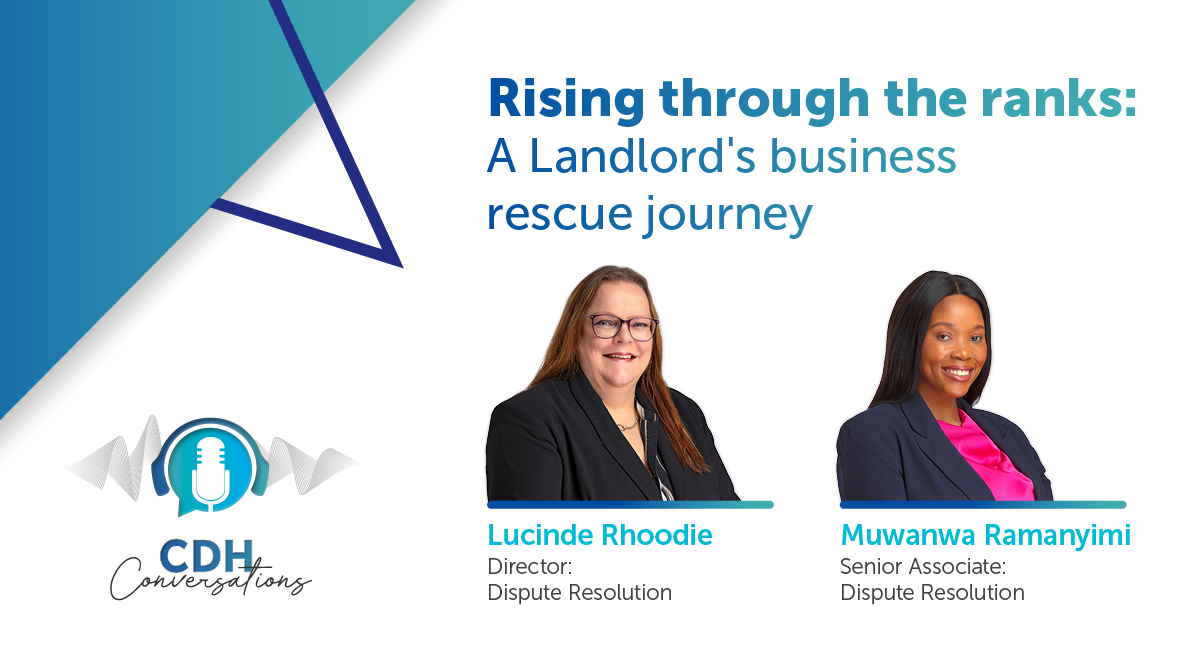Appealing or Rescinding? That is the question when dealing with judgments granted against a person without their knowledge
At a glance
- In the case of Lee v Road Accident Fund (22812/2020) [2023] ZAGPJHC 1068, the High Court was required to determine whether a judgment or order granted in default is appealed.
- The High Court considered the general principles to appeals and rescissions and stated that the function of an appeal is to reconsider cases that have been fully argued in the initial instance, which cannot be the case in a default judgment.
- A party to a judgment who did not have knowledge of the proceedings must be cautious to institute the correct application to set aside the judgment. This will avoid wasted legal costs and time in bringing the matter to finality.
The general rule is that a judgment is final and cannot be altered, amended or modified, and can be enforced by the party that obtained the judgment in its favour. The Courts do recognise two exceptions to this rule - the first exception is when a judgment is rescinded, and the second exception is when an appeal against a judgment is upheld.
The High Court in the matter of Lee v Road Accident Fund (22812/2020) [2023] ZAGPJHC 1068 was required to determine whether a judgment or order granted in default appearance is appealable.
In this case, Lee instituted action proceedings against the Road Accident Fund for damages suffered from a motor vehicle collision. The Road Accident Fund did not dispute liability for Lee’s damages but failed to enter an appearance to defend the action proceedings. Lee consequently applied for and was granted default judgment for R13,5 million.
Lee thereafter instituted an application to compel payment of the R13,5 million. In response, the Road Accident Fund instituted an application for leave to appeal the default judgment on the basis that the judgment was granted in its absence.
Lee opposed the application for leave to appeal on the basis that it was an irregular step and that the correct application that should have been instituted was a rescission application. Lee relied on the case of Pitelli v Everton Gardens Projects CC [2010] (5) SA 171 (SCA), which held that “a court order is not appealable until it becomes final. A court order does not become final if it is rescindable. It follows that an order that can be rescinded is not appealable.”
The Road Accident Fund disagreed with Lee’s contention and referred to the case of Moyana v Body Corporate of Cottonwood and others [2017] ZAGPJHC 59 (17 February 2017) (Cottonwood), which the Road Accident Fund contended departed from Pitelli. The High Court held in Cottonwood that a party could waive their right to rescind an order by bringing an appeal against the order, as a party who is in willful default of appearance should be allowed to appeal a matter rather than explain their default.
The High Court considered the general principles relating to an application to appeal and an application for rescission and stated that the function of an appeal is to reconsider cases that have been fully argued in the initial instance, which cannot be the case in a default judgment. The appeal court would as a result be asked to decide a case as a court of first and final instance, or remitting the case to the court a quo, which is what would happen should a rescission application be successful. The court further stated that appeals hold no procedural advantage over rescissions, in that a party may approach a court to exercise its powers to suspend the execution of the order while the rescission application is heard, much like the automatic suspension of the order when a case is appealed.
In conclusion, a party to a judgment who did not have knowledge of the legal proceedings must be cautious to institute the correct application to set aside the judgment. In the circumstances when a judgment or order is granted in default of appearance, the correct application is an application to rescind the judgment or order. Instituting the correct application will avoid wasted legal costs and time in bringing the matter to finality.
The information and material published on this website is provided for general purposes only and does not constitute legal advice. We make every effort to ensure that the content is updated regularly and to offer the most current and accurate information. Please consult one of our lawyers on any specific legal problem or matter. We accept no responsibility for any loss or damage, whether direct or consequential, which may arise from reliance on the information contained in these pages. Please refer to our full terms and conditions. Copyright © 2026 Cliffe Dekker Hofmeyr. All rights reserved. For permission to reproduce an article or publication, please contact us cliffedekkerhofmeyr@cdhlegal.com.
Subscribe
We support our clients’ strategic and operational needs by offering innovative, integrated and high quality thought leadership. To stay up to date on the latest legal developments that may potentially impact your business, subscribe to our alerts, seminar and webinar invitations.
Subscribe



